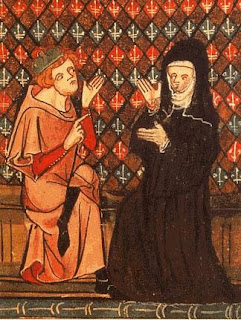Study Questions for A History of God, Chapter 9, "Enlightenment"
For many of us, this chapter takes place in familiar territory, a world in which “Science would replace religion. If the ignorance of nature gave birth to the Gods, the knowledge of nature is calculated to destroy them.” (Holbach, The Systems of Nature: or Laws of the Moral and Physical World, 1835) (p.344 print, 404, Kindle)
What kind of God can be discredited by a knowledge of nature? What exactly does such knowledge entail, and why is it incompatible, in Holbach’s mind, with God?
What associations do you have with the word “enlightenment?”
A synonym for the Enlightenment in Europe is “The Age of Reason.”
But in Buddhism, enlightenment (called bodhi in Indian Buddhism, or satori in Zen Buddhism) is when a Buddhist finds the truth about life and stops being reborn because once you get to Nirvana you are not born again. Buddhists believe a person can become enlightened by following the Middle Way. Not too extreme in either way of living. Nor an extremely luxurious life of ease and enjoyment nor an extremely harsh life on living on the minimum of the most basic necessities.
In this spirit, contrast Eastern ideas of reincarnation with the Christian experience of being “born again,” during the Great Awakening.
We meet a lot of people in this chapter.
Blaise Pascal (1623-1662)
Rene Descartes (1596-1650)
Isaac Newton (1642-1727)
Samuel Reimarus (1694-1768): Since Armstrong doesn’t mention this, I’ll add that Reimarus is
credited as being the father of the “Quest for the Historical Jesus.”
Baruch Spinoza (1632-77)
Moses Mendelssohn (1729-86)
Imanuel Kant (1724-1804)
Jonathan Edwards (1703-1758)
John and Charles Wesley
Count von Zizendorf (1700-1760)
Baal Shem Tov (Israel ben Eliezer) (1698-1760)
Isaac Luria (1534-1572)
David Hume (1711-1776)
Denis Diderot (1713-84)
Muhammad ibn al-Wahhab (d. 1784)
We meet devotions and movements:
The Sacred Heart
Quakers
Ranters
Hasidim
Wahhabism
Which of these figures/movements appeal to you? Which challenge you? Why do you think religion and science became rival systems in the West? Do you believe they are?
Revisit Armstrong’s definitions of “mythos: the eternal and universal,” and “logos, the rational, scientific and pragmatic.” We’ll take some time to consider various views of history and a God who is revealed through history. How does this influence us today?
And finally, in a world without God, who determines what is moral? Can we really take the measure of ourselves?

Comments
Post a Comment